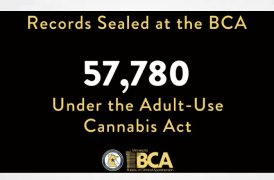IOL South Africa reports
Durban – The Western Cape High Court has dismissed the application of a company director who made an application to decriminalise cannabis “grow clubs”.
Last year, Neil Tristan Liddell, the director of The Haze Club (THC), and his employee Adam van Houten brought an application against the minister of police and others to determine the legality of growing cannabis.
Liddell and Houten were arrested on October 13, 2020, by the police. According to court papers, 344 cannabis plants and about 2.5kg of dried cannabis, valued at about R1 million, were seized.
In his founding affidavit, Liddell said that the impugned provisions of the Drugs Act as it applies to the grow club model is unconstitutional.
He said that growing cannabis is a specialised process which requires specialised knowledge, research, tools, ingredients and start-up funds.
It is also alleged that growing cannabis is a costly enterprise.
“By joining a grow club, members can enjoy the benefits of cannabis without having the necessary skill, equipment or cash flow required to cultivate one’s own cannabis.”
The first applicant would sub-lease space to the grow club members, and this would constitute the member’s private space.
There were four membership streams ranging from R485 to R1 320.
With a grow club model, the buyer does not purchase cannabis, but rather the expertise and the tools to cultivate the cannabis, and rents out the space where it may be cultivated.
However, in replying affidavits the minister of police and others argued that according to law, the cultivation of cannabis by an adult for his or her personal consumption in private does not allow the cultivation of cannabis belonging to another, and therefore, the establishment of a grow club which keeps and grows cannabis for others and which supplies cannabis to its members is illegal.
In handing down judgment, Judge J Slingers said recognising the grow club model would be impractical and nonsensical as it would allow the applicants to engage in conduct which would contravene sections 4(b) and 5(b) of the Drugs Act.
“The operation of grow club models, which are not subject to any statutory or legal guidelines or regulations, could increase the possibility of dealing.
“The grow club model has the potential to cultivate cannabis on a large scale and to generate huge amounts of money. This was evident from the number of plants and the weight of dried cannabis seized when the second and third applicants were arrested.”
By allowing the applicants, either by way of a grow club or as a cannabis horticulturist, to cultivate cannabis on a large scale for consumption by others for remuneration would amount to condoning dealing therein, very similar to the manner in which allowing the purchase of cannabis would be condoning the dealing of cannabis.
“The Constitutional Court recognised that dealing in cannabis is a serious problem in our country and a prohibition of dealing in cannabis is a justifiable limitation of the right to privacy.”
He therefore dismissed the application. No order was made in respect of costs.
Shaad Vayej, associate at Cliffe Dekker Hofmeyr Inc., said an appeal was forthcoming.
“What the concept of cannabis grow clubs represents is an opportunity for significant SMME participation in the increasingly valuable cannabis supply chain. By supplying private leases coupled with professional horticultural services, these clubs present significant prospects for job creation, skills development and taxation without the capital constraints of licensed medical cannabis cultivation.
“It is understandable that the State should seek to limit the proliferation of buying and selling recreational cannabis, this being unlawful. However, due consideration must also be given to the fact that internationally the trend is towards legalised responsible adult use and/or easily accessible medical cannabis. While the latter remains an uncertain value proposition requiring significant legislative evolution, it is clear that requiring SMMEs to meet the same standards applicable to large-scale cannabis cultivation of medical cannabis for export, is both exclusionary and stifling of the realisation of a thriving domestic cannabis economy.”

















